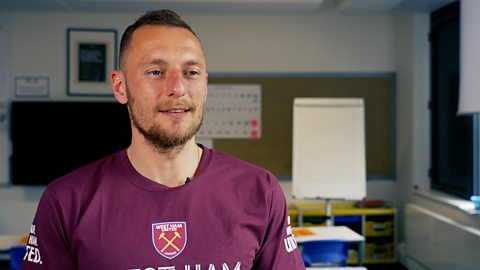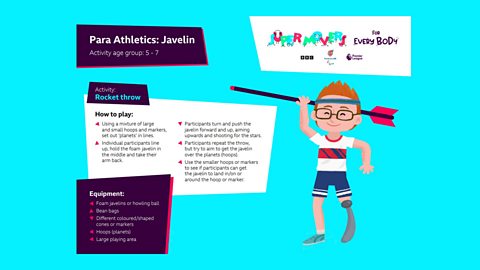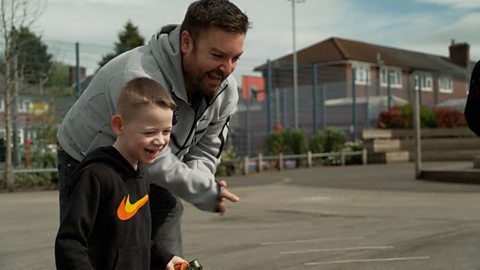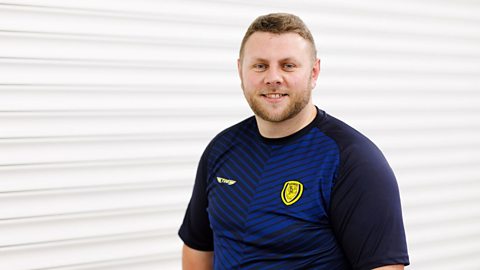
Charlie Sketchley is a disability coordinator at Burton Albion Community Trust using his lived experience of cerebral palsy to inspire others to take part in sport.
When he was young, Charlie enjoyed a variety of sports, but never thought disability football was something for him:
βI remember plain as day, 2002 World Cup, England played Brazil, I was at school and everyone remembers that game. It turns out that the same weekend, the cerebral palsy menβs team were playing in the final of their World Cup, there was nothing about that.β
Charlieβs journey into sport started when he would attend summer camps during the holidays as a child. From this, he discovered he had a talent for sports, particularly table tennis as he went on to compete in international fixtures for England as a teenager. However growing up there werenβt as many sport options for Charlie compared to his non-disabled peers. He says: βThere were the occasional SEN and disability teams, but they weren't really a big thing and it was never ever publicised in the media.β
Later on, Charlie met with coaches from a Para football scheme who introduced him to the West Midlands cerebral palsy football team. While Charlie enjoyed playing football, he wanted to engage more with others in his community and found his true calling to become a sports coach.
Now, Charlie coaches various Para football teams at Burton Albion, including a cerebral palsy team and blind football team. Along with being a coach on the Premier League's Primary Stars programme, he also coordinates the deaf football team and is about to start working on the England Para Talent pathway, where he will help develop the next generation of Para football stars to play for their nation.
While there are challenges and barriers to working with disability teams, Charlie uses his calm manner and critical thinking skills to support others:
βIf something positive has gone right, Iβd give praise straight away. Whether that be something theyβve never done before or theyβve listened to what was asked of them.β
For Charlie, sport has been a lifeline for him and has massively improved his health. Years of resilience and doctorsβ appointments have taught Charlie that encouraging disabled youths to get actively involved in sport and exercise is crucial for their development: βI know that I will naturally get worse, but through the power of sport, I was quite lucky that I went to the gym when I was younger and built my muscles up.β

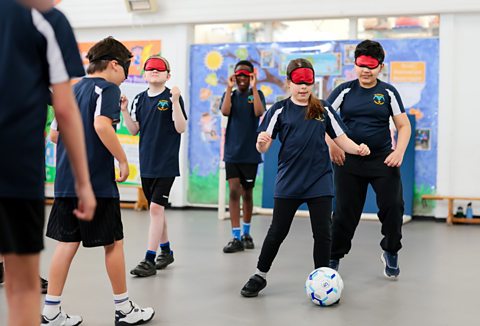
Charlie's advice for teachers
As a knowledgeable coach with both lived and professional experience, Charlieβs words of advice for teachers getting to grips with teaching disability sports, such as those available from Super Movers for Every Body are to: βBe honest. Be fun. Be true to yourself.β
In his opinion, the most valuable thing for disabled pupils is communication and ensuring everyone is able to express their opinions and feelings. Especially for non-verbal pupils, itβs recommended that cards or buttons are provided to ensure pupils feel supported.
Charlie makes sure that in his sessions everyone takes part, including those with limited mobility. He says itβs important for teachers to allow pupils to challenge themselves and to: βGive them some responsibility, even if it's just putting a pencil in a pencil pot!β
While it can feel tricky for primary school teachers to understand how to approach disability sport, Charlie says βallow yourself to make mistakesβ¦ curiosity is the best thing.β He encourages teachers to ask questions and listen, noting that it will take patience and practise, but through this teachers will gain more confidence supporting their disabled pupils in sport activities.
Primary school teachers looking to expand their PE lessons can make great use of the downloadable activity cards for blind football, boccia and Para athletics that are available from Super Movers for Every Body and include considerations and adaptations for specific impairments so that everyone can take part.


